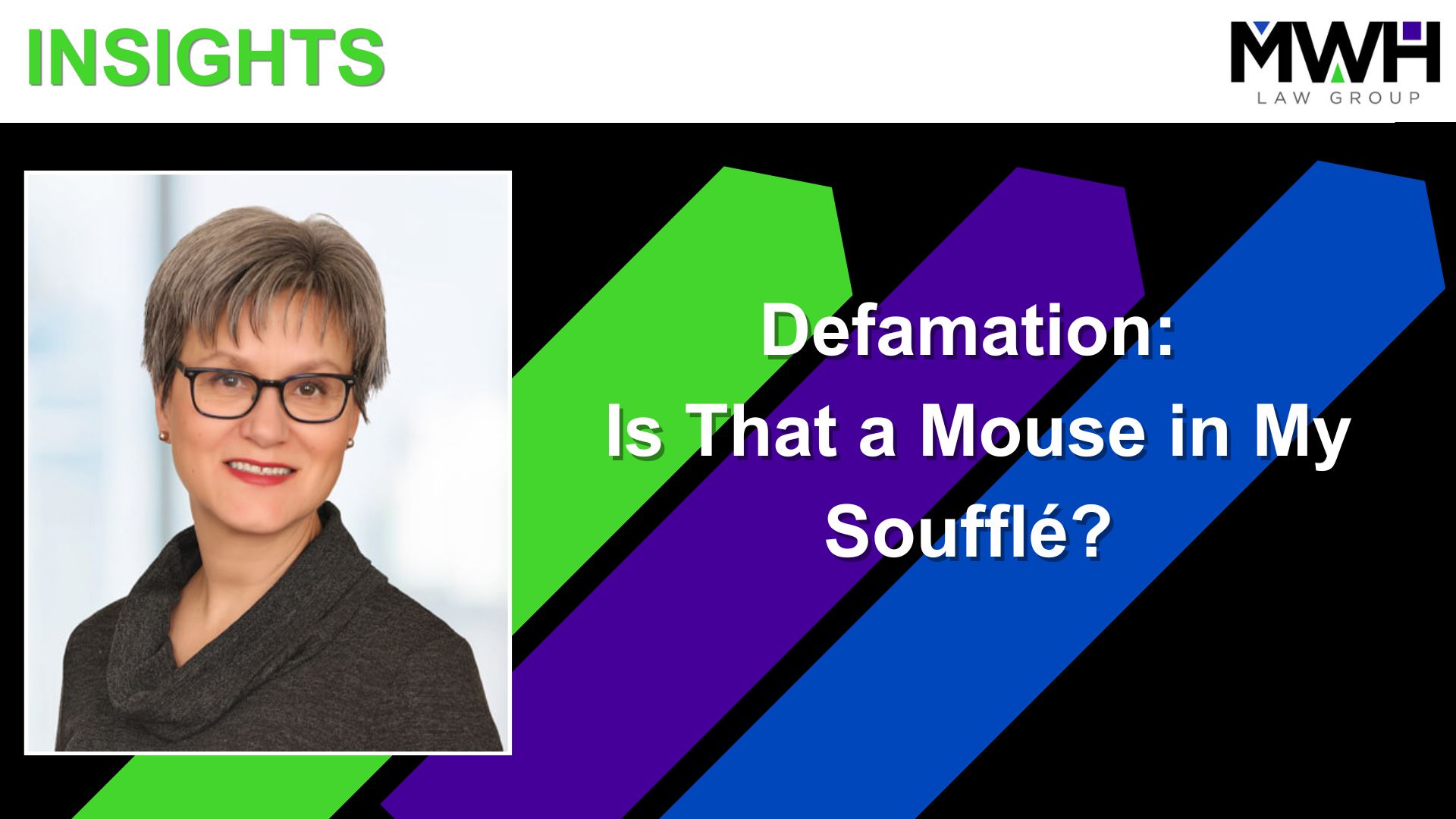Defamation: Is That a Mouse in My Soufflé?

It is increasingly common for individuals to assert defamation claims in employment litigation. This trend is particularly prevalent in the context of former employees initiating competing businesses despite non-compete contractual provisions, especially with the ease and accessibility of social media platforms for publication.
What Is Defamation? Per Quod vs. Per Se
Iowa defamation law can be difficult to navigate. Simply stated, defamation is the invasion of the interest in reputation or good name. There are two types of defamation: libel and slander. Libel is in writing or another fixed medium. Slander is spoken words. Defamation of either type is also divided into two different categories: per quod and per se. Per quod is Latin for “whereby.” Defamation per quod requires the audience to refer to facts or circumstances beyond the written or verbal words to understand the defamatory meaning. Per se in Latin means “by itself.” The content of a defamatory per se statement provokes wrath against the individual and exposes the person to public hatred. Iowa case law recognizes that statements affecting a person’s reputation in his or her business, trade, profession, or office are defamation per se. Lara v. Thomas, 512 N.W.2d 777, 785 (Iowa 1994).
Using a restaurant as an example, a defamatory per quod statement might involve alleging that the restaurant purchases its produce at a big box store. Further context is needed to determine whether the statement is injurious to the restaurant’s business—it could be harmless. If the restaurant represents to its customers or the public that it only buys its produce directly from local organic farmers, then the statement is likely defamatory. An example of defamation per se is posting on social media that a mouse jumped out of your soufflé at the restaurant.
The difference between per quod and per se is legally significant. Defamation per se does not require proof that the statement was made with malice or with reckless disregard for the truth, nor does it require proof of damages. Examples of defamation per se in Iowa cases include statements of illicit and nefarious behavior at a teen dance club, Barreca v. Nickolas, 683 N.W.2d 111, 117 (Iowa 2004); imputation of loathsome disease, Schultz v. Shultz, 275 N.W. 562, 565 (Iowa 1937); adultery, Arnold v. Lutz, 120 N.W. 121, 121 (Iowa 1909); and theft, Hicks v. Walker, 2 Greene 440, 442 (Iowa 1850).
True statements are not defamatory. A statement alleging that the restaurant lost your reservation and that you had to wait an hour to be seated, if true, is not defamatory, though it could be damaging to the reputation of the restaurant. Opinions are entitled to absolute privilege under the First Amendment as an exercise of free speech. For example, a statement that you found the food at the restaurant not worth the price is an expression of opinion, and no liability would be associated with such a statement. The statement alleging that a mouse jumped out of your soufflé is not an opinion. However, if the statement is true, then it would not be defamatory.
In conclusion, when speaking of former employees, employers should pause before hitting post or send, and consider whether the statement may potentially be defamatory. If you are currently involved in litigation with a former employee, ask your employment attorney for advice on how to avoid a defamation claim.

